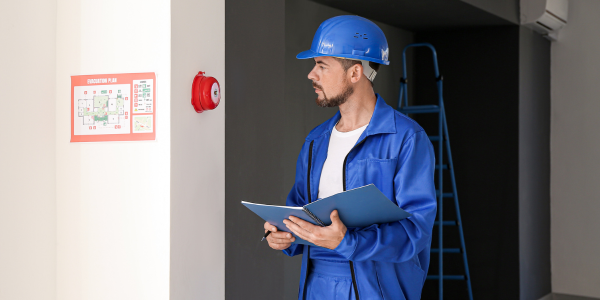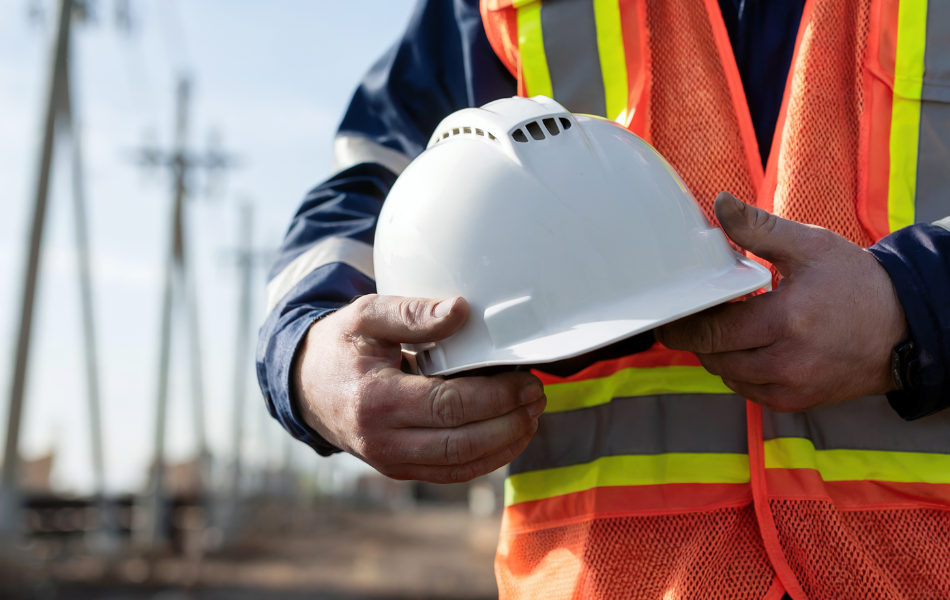Grenfell Inquiry Report: September 2024
The Grenfell tragedy was a devastating event that must mark a turning point for fire and building safety across the housing and construction sectors

As the centre of excellence for improving property performance, the NHMF welcomes the publication of the Grenfell Tower Inquiry’s final report. It appreciates the thorough work the Inquiry has carried out to investigate the reasons for and causes of this tragedy. While there is much for the sector to learn from this report, it is important that social landlords focus on keeping their existing residents safe and comply with the Building Safety Act.
The NHMF promotes best practice in social housing maintenance and is committed to championing innovation to deliver excellence in maintenance and asset management. The NHMF and its Service Provider Forum are working to share best practice to support the sector learn from Grenfell. They promote the competence required within the sector to safeguard against such a disaster happening again.
This report is an important step in helping social landlords ensure residents are safe in their homes, something they are already committed to. It will take time for the sector, construction industry and government to digest all the recommendations and act on them. While this will take time, social landlords need to continue remediating unsafe higher-risk buildings (HRBs) and complying with the Building Safety Act 2022 to keep residents safe in existing HRBs.
What should social landlords be doing now?
Firstly, social landlords need to assess and manage the safety risks in their HRBs. This is an integral part of preparing the safety case report that will be required when applying for the Building Assessment Certificate (BAC). They also need to develop a resident engagement strategy as part of the BAC process. This is the responsibility of the ‘Accountable Persons’ (APs) and ‘Principal Accountable Person’ (PAP).
What are some key recommendations for the sector?
A single regulator all the functions relating to the construction industry to regulate work on HRBs. This should include particular duties on those involved in the construction and refurbishment of HRBs, with the Building Safety Regulator responsible for building control and for overseeing standards of competence.
The definition of a HRB for the purposes of the Building Safety Act be reviewed urgently to ensure the safety of vulnerable people in a fire or other emergency.
Require that a fire safety strategy produced by a registered fire engineer to be submitted with building control applications (at Gateway 2) for the construction or refurbishment of any higher-risk building and for it to be reviewed and re-submitted at the stage of completion (Gateway 3). Such a strategy must take into account the needs of vulnerable people, including the additional time they may require to leave the building or reach a place of safety within it and any additional facilities necessary to ensure their safety.
Require that the profession of fire engineer be recognised and protected by law and that an independent body be established to regulate the profession, define the standards required for membership, maintain a register of members, and regulate their conduct.
Introduce a licensing scheme operated by the construction regulator for principal contractors wishing to undertake the construction or refurbishment of HRBs and require any application for building control approval for the construction or refurbishment of a HRB (Gateway 2) be supported by a personal undertaking from a director or senior manager of the principal contractor to take all reasonable care to ensure that on completion and handover the building is as safe as is required by the Building Regulations.
Establish a system of mandatory accreditation to certify the competence of fire risk assessors by setting standards for qualification and continuing professional development and such other measures as may be considered necessary or desirable.
Does the Report recommend further regulation of social landlords?
No. The Social Housing (Regulation) Act 2023 enables the Regulator of Social Housing to play a more active role in setting appropriate standards and ensuring that they are met. It also has the power to set standards on the competence and conduct of those involved in the provision of services relating to the management of social housing and to require providers of social housing to make information available both to tenants and the regulator. The Act also makes safety a priority and imposes a duty on landlords to investigate and remedy within a specified time of being reported defects that may adversely affect health.
What is the NHMF doing?
The NHMF has published Q&A briefings on its Best Practice website relating to building and fire safety that cover:
What information is available to social landlords?
The Building Safety Regulator (BSR) has published information and guidance on Building safety reforms and Building Control: An overview of the new regime. It has also published information on the roles of APs and the PAP and their legal duties and will be producing case studies. The BSR has published links to recordings of its training webinars, such as:
There are more resources on its website, including webinars. These BSR webinars and training sessions will help Landlords, APs and PAPs understand their legal responsibilities and what the BSR expects. They should consider registering for future sessions, as well as listening to recordings of previous ones.
There is also a free Building Safety Regulator ebulletin for anyone who wants to keep up-to-date and to be alerted on the building safety reforms. It has published its April BSR eBulletin, which gives details of its Conference 2024 on 21 May, which is relevant for Accountable or Principal Accountable Persons, as well as organisations engaged with residents. There will also be sessions for other groups involved in Building Safety.
APs and PAPs should sign up to the BSR eBulletin. These eBulletins also give details of the free webinars the BSR organises to help duty-holders understand their legal responsibilities.
The NHMF Best Practice website has Q&A briefing on the Building Safety Act.
In addition, the Chartered Association of Building Engineers (CABE) and Building a Safer Future (BSF) have entered a new strategic partnership support organisations assess their competency in relation to building safety, especially in regard to HRBs.
- Final (Phase 2) report and Executive Summary with Recommendations
- Press release and Statement on Publication of Phase 2 Report


